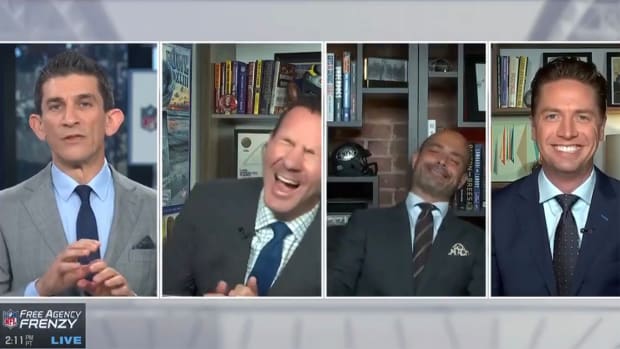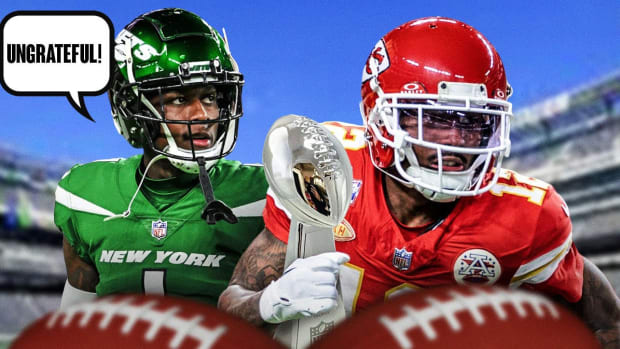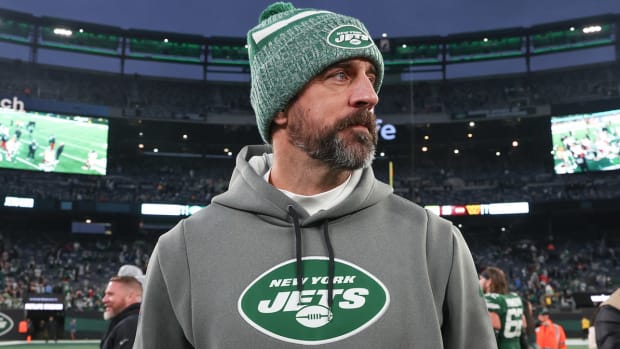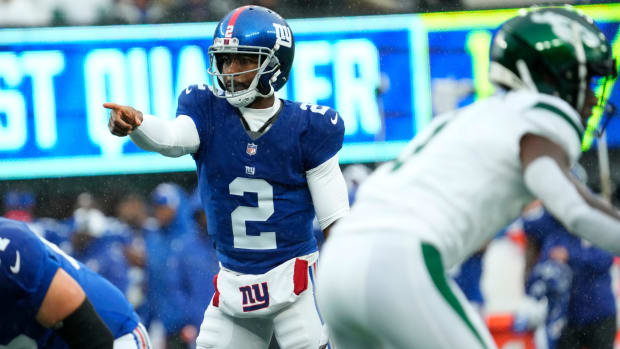WATCH: If Sam Darnold Sits, Jets Need Throwback Game From Luke Falk vs. Eagles
With New York Jets quarterback Sam Darnold (mono) now cleared for non-contact practice, he finally seems to be trending in the right direction to play Sunday at the Philadelphia Eagles (2-2).
Jets coach Adam Gase even says the odds are now better "than what they've been."
However, if Darnold is unable to suit up in Week 5, the Jets (0-3) will once again turn to backup Luke Falk.
Falk has taken a cautious approach to New York’s passing game since being named the starter, which is understandable considering he never played an NFL snap until called into action in Week 2.
Yet, if Falk gets the nod, the only way the Jets will get their first win of the season and first-ever victory against the Eagles, is if he starts throwing the ball with confidence.
So far, the 25-year-old has relied too much on the short passing game, averaging just 3.6 yards per completion and 5.7 yards per target across the two games he’s played in this season.
To put that number in perspective, signal-callers like Josh Rosen (5.5, 9.4), Kyle Allen (5.6, 8.2) and Case Keenum (5.2, 6.8) have been more aggressive when dropping back to pass. The positive here is that, while he hasn’t done so at the professional level, Falk is no stranger to letting the ball fly with reckless abandon.
Falk ran an air raid offense under Mike Leach at Washington State and ran pass plays on 69.1 percent of his offensive snaps in his three years as the program’s starting quarterback.
Given free reign during his time with the Cougars, Falk left as one of the most prolific passers in college football history, finishing his collegiate career with all-time top-10 marks in completions (1403, second all-time), attempts (2054, fourth all-time), yards passing (14,481, eighth all-time) and passing touchdowns (119, 10th all-time).
There’s a huge difference between college football and the NFL, but Falk needs to approach Sunday’s game against the Eagles with the same gunslinger mentality he had at Washington State.
Gang Green has an all-world tailback in Le’Veon Bell and their offensive success - for the most part - depends on his performance. However, based on how the Eagles have played the run, leaning on the ground game may give the Jets more questions than answers.
Philly has been downright dominant against the run this year, allowing just 62.0 yards rushing per game this season (No. 4 in the NFL). And it’s not like they’ve done so against marginal talent either, having contained the likes of Devonta Freeman and Kerryon Johnson, to name a few.
The front seven of the Eagles is as stout as they come and could cause problems for Bell, who couldn’t get going against the New England Patriots (4-0) in Week 3 (61.2 yards rushing allowed per game, No. 2 in the NFL). However, Philly’s defense is not without its weaknesses.
The Eagles have been absolutely shredded through the air this season (323.8 yards passing allowed per game, No. 32 in the NFL) and have been susceptible to the big play on many occasions (41.1 completion percentage on deep passes), which is why it’s so crucial that Falk airs it out on Sunday.
If Falk consistently tests Philly’s secondary with shots down the field, the Jets will have a much better chance of escaping Lincoln Financial with a win.





